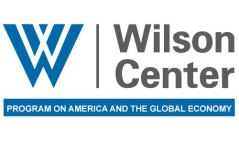New Digest – Innovation and Entrepreneurship: The Right Combination for Growth?
October 24, 2011 1 Comment
 On October 7, 2011, Wilson Center on the Hill hosted an event titled, “Innovation and Entrepreneurship: The Right Choice for Growth?” Three panelists, Amy Wilkinson, Philip Auerswald, and Brink Lindsey, along with moderator Kent Hughes, addressed the importance of innovation and entrepreneurship in creating economic growth.
On October 7, 2011, Wilson Center on the Hill hosted an event titled, “Innovation and Entrepreneurship: The Right Choice for Growth?” Three panelists, Amy Wilkinson, Philip Auerswald, and Brink Lindsey, along with moderator Kent Hughes, addressed the importance of innovation and entrepreneurship in creating economic growth.
Brink Lindsey, a senior scholar at the Ewing Marion Kauffman Foundation, proposed solutions to the issue of “structural doom and gloom” often brought up by economists. Lindsey argued that unemployment and concerns regarding innovation are problems that can be solved through effective entrepreneurship. He contended that jobs come from startup firms, and from 1997-2005 these firms were the only source of net new jobs. The barriers to entry for new firms need to be eliminated, he noted, and road blocks to growth must be identified.
Lindsey summarized the proposed Start-Up Act as a path out of the recession and to renewed prosperity. In particular, he emphasized three elements of the Act: establishing an “entrepreneur” visa, implementing tax advantages for start-up firms, and increased access to capital markets. Immigration was an especially crucial issue, Lindsey argued, as students who come to the U.S. from abroad to study STEM subjects often find it too difficult to stay. Today’s innovative companies have a large international workforce, and immigrants are an important asset to the U.S. economy. Lindsey also encouraged a balance between regulatory costs and regulation, while noting that regulation is most efficient at the local level. He urged the United States to consider using the World Bank’s model for regulation, which focuses on states and localities. Lindsey concluded by arguing that the U.S. needs “well-structured rules that allow creative and innovate people to be creative and innovative.” Read more of this post


